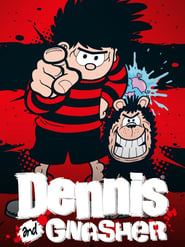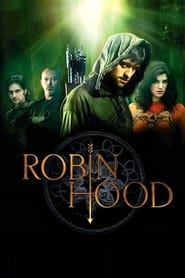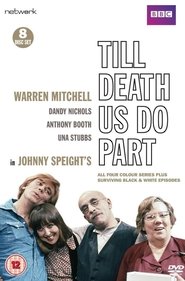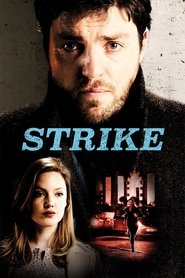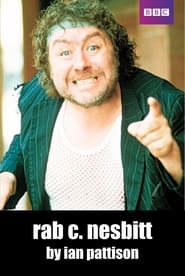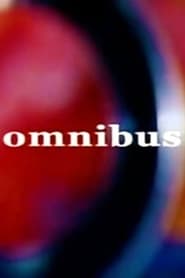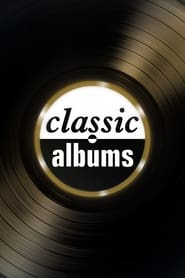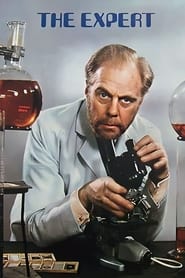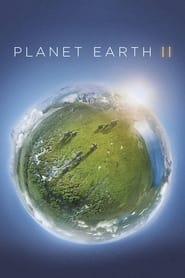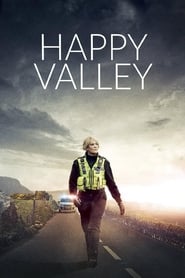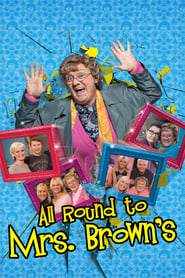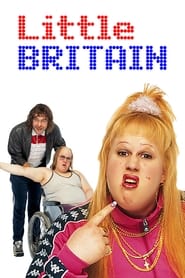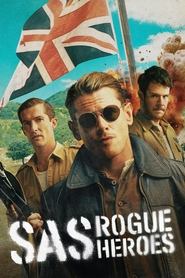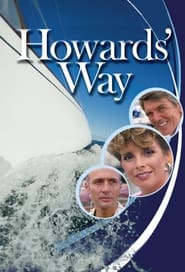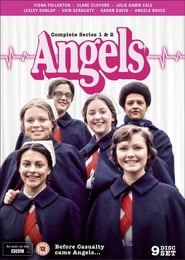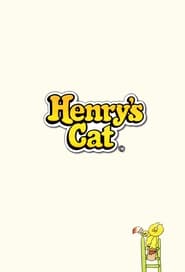Bbc One TV Series - Page 12
-
Dennis the Menace and Gnasher
1996
star 4.8Dennis and Gnasher is an animated British TV series based on characters from The Beano comic, It features the daily adventures of the rebellious schoolboy Dennis the Menace and his dog Gnasher. -
Robin Hood
2006
star 6.9An updated series following the life of Robin Hood and his Merry Men in Sherwood forest. Together they steal from the rich and give to the poor - all the while avoiding their enemies Sir Guy of Gisborne and the Sheriff of Nottingham. -
Till Death Us Do Part
1966
star 7.4Following the chronicles of the East End working-class Garnett family, headed by patriarch Alf Garnett, a reactionary working-class man who holds racist and anti-socialist views. -
Strike
2017
star 7.1A war veteran turned private detective operates out of a tiny office in London’s Denmark Street. Although wounded both physically and psychologically, his unique insight and background as a military police investigator prove crucial in solving complex crimes that have baffled the police. Based on the bestselling novels written by J.K. Rowling under the pseudonym Robert Galbraith. -
Rab C. Nesbitt
1990
star 7BBC comedy series about Rab C. Nesbitt, a drunken, string vested layabout who lives with his long suffering wife Mary and his two sons in the working class area of Govan in Glasgow. When he's not getting drunk with his pals that include the devious, womanizing Jamesie Cotter. He's offering his philosophical outlook on life to whoever will listen. -
Omnibus
1967
star 7.3Omnibus was an arts-based BBC television documentary series, broadcast mainly on BBC1 in the United Kingdom. The programme was the successor to the long-running arts-based series 'Monitor'. It ran from 1967 until 2003, usually being transmitted on Sunday evenings. During its 35-year history, the programme won 12 Bafta awards. Among the series' best remembered documentaries are Cracked Actor, a profile of David Bowie, and Rene Magritte, a graduate film by David Wheatley, 'Madonna: Behind the American dream', a film produced by Nadia Hagger, and a profile of the British film director Ridley Scott. For a season in 1982, the series was in a magazine format presented by Barry Norman. The series was replaced by 'Imagine' hosted by Alan Yentob. -
The Late, Late Breakfast Show
1982
The Late, Late Breakfast Show was a BBC television light entertainment show broadcast live on Saturday evenings from 4 September 1982 to 8 November 1986. It was presented by Noel Edmonds, initially with co-host Leni Harper and also featured Mike Smith and John Peel. It is remembered for several accidents during its regular "Give It A Whirl" stunt slot; in particular, the 1986 death of Michael Lush. -
Classic Albums
1997
star 7.7A documentary series about pop and rock albums that are considered the best or most distinctive of a well-known band or musician or that exemplify a stage in the history of music. -
The Expert
1968
star 9.5The Expert is a British television series produced by the BBC between 1968 and 1976. The series starred Marius Goring as Dr. John Hardy, a pathologist working for the Home Office and was essentially a police procedural drama, with Hardy bringing his forensic knowledge to solve various cases. The Expert was created and produced by Gerard Glaister. The series was also one of the first BBC dramas to be made in colour, and throughout its four series had numerous high quality guest appearances by actors such as John Carson, Peter Copley, Rachel Kempson, Peter Vaughan, Clive Swift, Geoffrey Palmer, Peter Barkworth, Jean Marsh, Ray Brooks, George Sewell, Anthony Valentine, Bernard Lee, Lee Montague, Geoffrey Bayldon, Mike Pratt, Edward Fox, André Morell, Brian Blessed, Nigel Stock, Philip Madoc and Warren Clarke. -
Playing for Time
2000
Playing for Time
2000
Playing for Time was a BBC Television daytime quiz programme that aired on BBC One from 13 November 2000 until 2001. The programme was hosted by Eamonn Holmes. -
Planet Earth II
2016
star 8.6David Attenborough presents a documentary series exploring how animals meet the challenges of surviving in the most iconic habitats on earth. -
Changing Rooms
1996
star 5.6Changing Rooms was a do-it-yourself home improvement show broadcast in the United Kingdom on the BBC between 1996 and 2004. The show was one of a number of home improvement and lifestyle shows popular in the late 1990s and early 2000s. The show was later franchised, generally under the same name, for the local TV markets in the United States, New Zealand and Australia. -
Happy Valley
2014
star 7.9Happy Valley is a dark, funny, multi-layered thriller revolving around the personal and professional life of Catherine, a dedicated, experienced, hard-working copper. She is also a bereaved mother who looks after her orphaned grandchild. -
All Round to Mrs. Brown's
2017
star 7.9Mrs Brown opens the doors to her house for a Saturday night entertainment show in which she and the family are joined by celebrity guests. -
Little Britain
2003
star 7.1A zany comedy show with Matt Lucas and David Walliams, featuring characters from all over Little Britain. -
SAS Rogue Heroes
2022
star 7.6The dramatised account of how the world’s greatest Special Forces unit, the SAS, was formed under extraordinary circumstances in the darkest days of World War Two. -
Howards' Way
1985
star 5.6The BBC's answer to Dynasty, Howards' Way was launched in 1985 with an enormous 1 million pound budget. The main characters in the show were 'best boat designer in the world' Tom Howard, his boutique running wife Jan Howard, 'I'll have a drink' Jack Rolfe and a nasty man called Ken Masters. It starred Maurice Colbourne. -
Angels
1975
star 3.7Angels is a BBC medical soap-opera which launched on 1st September 1975 and was the blue print for such medical soaps as Casualty, Holby City, plus daytime soap, Doctors. The medical soap focuses on different departments within Heath Green Hospital and was a highly successful continuing drama. -
Sunday Night Theatre
1950
star 3.5Sunday Night Theatre was a long-running series of televised live television plays screened by BBC Television from early 1950 until 1959. The productions for the first five years or so of the run were re-staged live the following Thursday, partly because of technical limitations in this era, and the theatrical basis of early television drama. Some of the earliest collaborations between Rudolph Cartier and Nigel Neale were produced for this series, including Arrow to the Heart and Nineteen Eighty-Four. The Sunday night drama slot was subsequently renamed The Sunday-Night Play which ran for four seasons between 1960 and 1963. ITV transmitted its own unrelated run of Sunday Night Theatre between 1971 and 1974. -
Henry's Cat
1983
star 4.7Henry's Cat is an animated children's television programme, written by Stan Hayward and produced by Bob Godfrey, who was also the producer of Roobarb and Noah and Nelly in... SkylArk. The show starred a laid-back, ponderous yellow cat, known only as Henry's Cat, and his many friends and enemies. Henry's Cat was first screened on 12 September 1983 and has enjoyed reruns since then. Five series were made in total.
